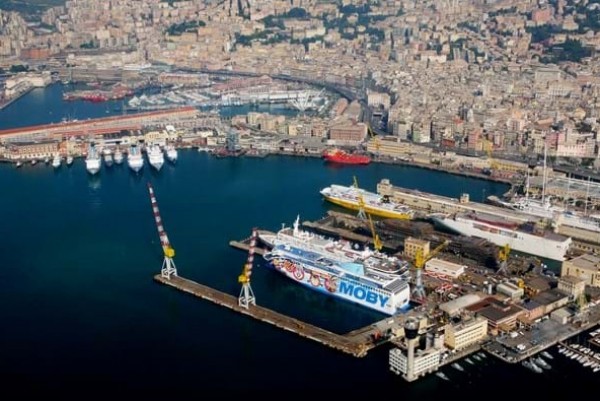| Shenzhen Port to sign Agreement with Genoa | |

| Author: CSEBA / SEEbiz / Beltandroadnews |
| 5th June 2019 |
| SHENZEN - The Chinese Port of Shenzhen is set to become a “sister” of the Italian port of Genoa and is ready to share its experience in applying “green” and “smart” technologies in a transport hub, Yanze Dong, the director for ports and shipping at the administration department of the Transport Bureau of Shenzhen Municipality. |
|
Shenzhen is in the far south of China; Genoa is in the far north of Italy. Shenzhen is 40 years old; Genoa still has ruins of the Roman Empire walls, and its history goes back to the early centuries AD. Nevertheless, the two maritime hubs have one important thing in common the willingness to cooperate in the wake of Italy signing a memorandum of understanding with China on Beijing’s ambitious Belt and Road Initiative (BRI) earlier this year. “We are going to sign a ‘sister port’ agreement with Genoa in Munich. It will be a symbol of our connection,” Dong said. The agreement will be signed on the sidelines of the Transport Logistic world leading trade fair in the German city on June 5. At the moment, Shenzhen has sister agreements with 25 port cities around the world. However, the only Italian port on this list is that of Taranto in southeastern Italy. Shenzhen is an important nexus in the “One Belt, One Road” layout, as it connects the routes to the Central Asia and Europe, to South Asia and to the Pacific. After an agreement has been signed with Genoa, Chinese goods will have one more point of entry to the European market through the Mediterranean Sea. Despite its relative youth, Shenzhen port has proven to be very successful: it ranks third in China by city GDP and has earned the title of a “green port” and a “smart port.” Shenzhen encourages the vessels entering the port to use low-sulfur oil. Moreover, gantry cranes of all container terminals have converted oil to electricity, and half of the trailers in the port have switched from oil to gas. “We are a small city with a large population. So, we need a clean city and a clean sky. That is why the government encourages the use of electric vehicles. Shenzhen is now an example for the rest of China. We are ready to share our experience with the port of Genoa on the use of electric vehicles and making it a green hub,” Dong said. The Genoan port’s Energy and Environment Plan that focuses on the ways to apply energy-saving measures, and rationalise the consumption and production of energy from renewable sources. The port authorities are monitoring energy consumption and emissions coming from the chimneys of the ferry ships together with the environmental agency APRAL in order to gradually replace fossil fuels with biomass and LNG. “The Shenzhen port is also a ‘smart port’ because we are enjoying the benefits of the 5G network. Apart from this, we are trying to reduce as much as possible all the intermediate links that are present in the work process. It is necessary because we are a small port with an immense workload, meeting really many containers. So, the ultimate goal is to have people not working in just loading or unloading, but to organise everything just in front of the screen. Of course, it is up to every port to decide whether to apply 5G or not, according to their needs, but we are here to demonstrate the benefits,” Dong said. Genoa is competing with the ports of Marseille and Barcelona to be the biggest in the Mediterranean, and is the busiest port of Italy in terms of total traffic, product diversity and economic output. “The Belt and Road Initiative will definitely be able to provide a positive environment for the growth of trade between our two countries … So far Shenzhen has been mainly a port from which the goods produced in China were exported. The main activity of the port has so far been exporting. Now, instead, most of the factories are gone, because they are outsourced to other places. Some of them are left of course, but now there has been a change, so it’s no longer just exporting, but also importing. Shenzhen would be interested in importing from Italy, for example,” Dong said. The transport bureau official stressed that both ports Shenzhen and Genoa were “incredibly important.” “And both have a lot of room for growth. Regardless of whether it’s import or export, there is a room for growth,” he added. Italy’s endorsement of the BRI was met with scepticism in Brussels and Washington. The United States is involved in a trade war with China. The United States claims the infrastructure project and the use of Chinese technologies for the next-generation internet compromise independence and cybersecurity of those who participate in it. Sharing similar concerns, most of the traditional allies of the United States, including European countries, Australia and Japan have decided not to endorse the Chinese initiative. Italy was the first of the G7 countries to do so. |
 |
|
| 23rd November 2024 | |
| China has good news for Croatian citizens | |
 |
|
| 7th November 2024 | |
| Pelagos net farm products presented at the Shanghai fai | |